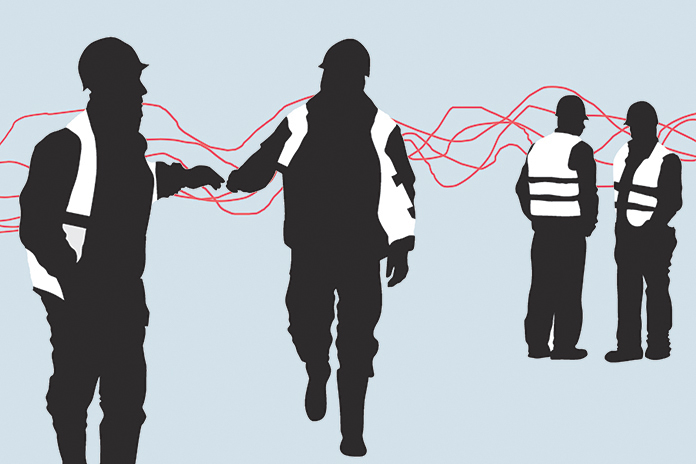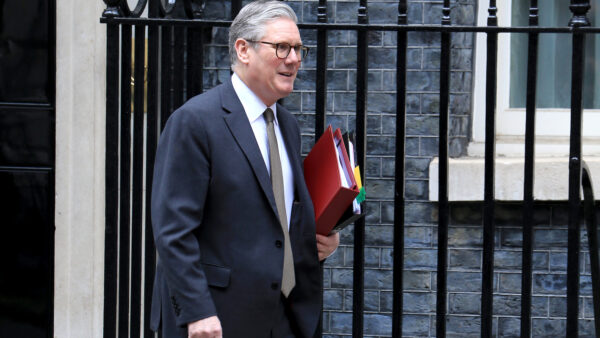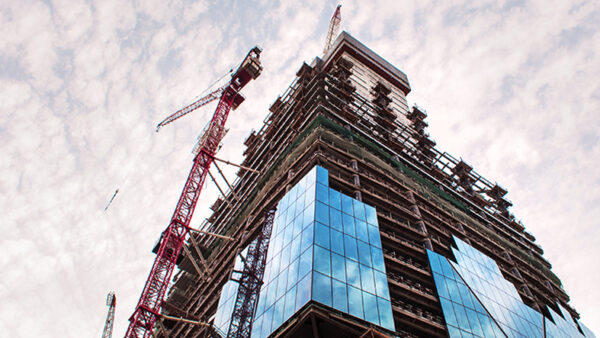
Creating a sense of community and looking out for each other’s mental health – particularly during the Covid-19 outbreak – is crucial to construction workers’ wellbeing, says Peter Whitmore.

Peter Whitmore
Covid-19 will only exacerbate construction’s struggle with mental health which, as the CIOB survey results show, is a major industry problem. Building is the deadliest profession in the UK – but it’s not onsite accidents that are killing us. Over 450 of our construction industry colleagues took their own lives in 2016, three times the national average for men.
We’re an industry staffed by people used to working under pressure and we struggle to admit vulnerability or accept that we might not be able to solve what’s bothering us on our own.
Over the last few years, Morgan Sindall Construction has been on a real journey with mental health as a key priority and the steps we’ve taken are now ingrained in our approach across our business and our key supply chain partners.
Many of our teams on site are young men, often working away from home. This lack of family and community support, coupled with a highly pressured working environment, can be toxic. So a big part of our commitment to our teams’ mental health is to be the community they need.
We recognised early that good intentions are not enough: people need training to respond confidently and consistently to colleagues in distress, recognise mental health warning signs early, and guide people in crisis to the help they need.
Twenty-four people across our offices in the eastern counties have now been trained as Mental Health First Aid officers and we continue to build on this.
In one instance, we had a young man on site who was experiencing severe depression after being put on the wrong medication. Our mental health first aiders were able to respond to early warning signs and support him in getting the right medication and care.
He returned to work a changed man – able to continue to be a great husband and father to his young family and a valued colleague. Experiences like this have really shown us the importance of investing in training for our team; it is literally lifesaving.
Habitual changes have also taken place in the way we speak to our people in every interaction – from induction to appraisals. Our inductions are very different now than they may have been 10 years ago; we welcome rather than induct, and work consciously to ensure everyone who sets foot on our sites feels included and valued.
Our entire senior management team has also had mental health first aid training, and our focus is on the individual’s development in the context of their wider personal experience. This enables richer conversations, which build deeper levels of trust, and our senior team are equipped to work through personal or professional issues team members may face, in an open and safe space.
Building positivity and resilience
Mindfulness training in partnership with the mental health charity MIND across our offices has also helped build positivity and resilience and we encourage people to practice meditation and mindfulness.
Technology plays a huge role in enabling our teams to feel connected across sites. Virtual meetings via Microsoft Teams provide valuable face time and connect people even when they are working remotely. Morgan Sindall Group also operates a 24/7 free helpline for anyone in the business in need of support.
We know from experience that almost everyone suffering wants to share, they often just need someone to start the conversation. A company-wide commitment to mental health means that now our most vulnerable team members can have a potentially life-changing conversation with someone who wants to go the distance with them and is trained to help them get the support they need.
Peter Whitmore is managing director of Morgan Sindall Construction East










